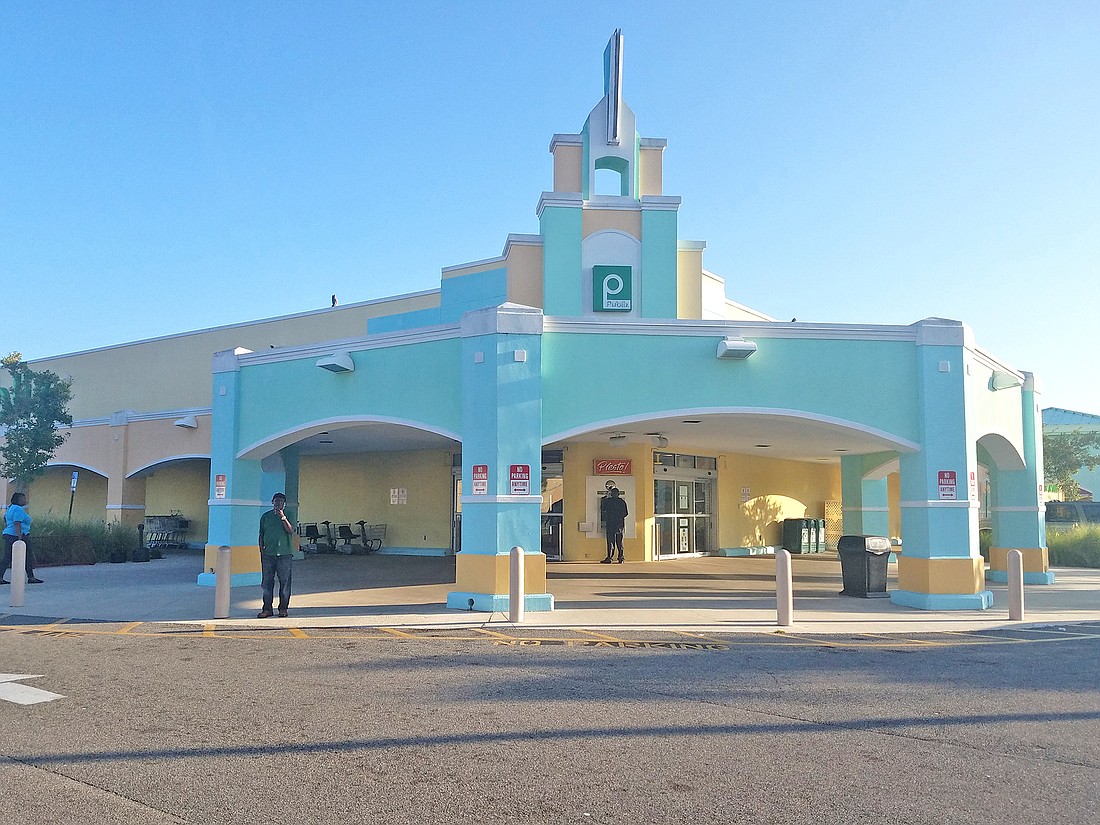
Office of Economic Development representatives are moving to put more taxpayer dollars toward stopping the spread of food deserts in Northwest Jacksonville.
As Publix prepares to move out of the anchor space at Gateway Town Center by Dec. 28, city officials have found themselves trying to keep another food desert from forming.
District 7 City Council member Reggie Gaffney, who represents the area, said Monday that Southeastern Grocers’ legal team is examining lease terms from Gateway Town Center LLC to fill the Publix space with its Winn-Dixie banner.
Lakeland-based Publix Super Markets Inc. announced in October it would not renew its lease for the 28,120-square-foot space at 5210 Norwood Ave.
The city sent Southeastern Grocers the terms it offered to Rowe’s IGA Supermarkets for city-backed incentives to lease the space.
Rowe’s IGA owner Rob Rowe said Nov. 10 he decided against leasing the space after he tried to negotiate terms with the landlord.
Gaffney said Southeastern Grocers is using the term sheet as a template to understand how the city program operates.
“The reason we did that is so they (Southeastern Grocers) know the city is willing to support this project and have a Winn-Dixie in Gateway,” he said Thursday.
Gaffney said previously the city could offer the next tenant for the Publix space $500,000 to $700,000 from the Northwest Jacksonville Economic Development Fund, but he said he wouldn’t propose a specific amount Monday for the Winn-Dixie deal.
“But it’s going to be up to Winn-Dixie to determine what they need to get the building up to code to meet their standards,” Gaffney said.
If the Gateway area is left without a grocery store, it would create a food desert for the neighborhood’s residents.
The city’s economic development office considers an area without a grocery store located within a mile a food desert.
Incentives and pilot programs
Publix’s departure is not the first grocery store to leave Northwest Jacksonville in recent years, and City Hall wants to put taxpayer dollars toward the problem.
The Council Finance and Neighborhoods, Community Services, Public Health and Safety committees unanimously advanced a bill this week to approve a $750,000 grant to partially finance renovations and reopen a shuttered Harveys grocery store in Northwest Jacksonville as a Rowe’s IGA.
Ordinance 2019-0767 would issue the grant to Commonwealth Shopping Center landlord Saglo Development Corp. of Miami that plans a $3.5 million renovation of the 49,000-square-foot store at 1020 Edgewood Ave. N. with Rowe’s.
Saglo and Rowe’s must obtain a certificate of occupancy from the city before the grant is issued. The development agreement will include a clawback provision of $150,000 per year over five years to ensure the project operates as a grocery store.
A second bill, Ordinance 2019-768, includes four pilot programs that go beyond subsidizing retail.
A $200,000 mobile markets program will partner the city with the nonprofit Feeding Northeast Florida to deploy refrigerated fresh food trailers into food deserts throughout the area.
The nonprofit was founded in 2014. Among other programs, it distributes more than 22,000 pounds of fresh food and produce to partners including the City Rescue Mission, Trinity Rescue Mission, Beaches Emergency Assistance Ministry, The Salvation Army and the Sulzbacher.
The city will purchase one trailer and a truck at no more than $200,000 while Feeding Northeast purchases the second trailer.
The remaining $100,000 will pay for the Jacksonville Transportation Authority to provide residents within the modified ReadiRide boundary with discounted transportation from their homes to a grocery store within the boundary and back.
Two additional programs in the bill do not include immediate city funding. One would provide a subsidy to food delivery companies that ship to locations within the Interstate 295 loop within the Northwest Jacksonville boundary.
The second program would provide a one-time $5,000 grant to existing retail businesses not offering fresh foods, vegetables or meats to purchase “open air” refrigeration units, which are those used in grocery stores to display those products.
Both bills would be paid for with about $3 million earmarked in 2018 from the Northwest Jacksonville Economic Development Fund to make healthy food available and affordable in food deserts.
According to a memo provided to the Mayor’s Budget Review Committee from the economic development office, the food desert program budget will have $1.84 million remaining after Council approves the bills and they are signed by Mayor Lenny Curry.
Feeding Northeast Florida President and CEO Susan King says the programs are a good first step by the city to address food deserts and food insecurity in Northwest Jacksonville.
According to U.S. Department of Agriculture data, there are 29 areas in Duval County that fit the federal government food desert definition.
King said of the 253,000 people in Northeast Florida who are considered food insecure, 170,900 live in Duval County — 19% of the population, or about 1 in 5 people.
The mobile market trailers are custom-built. The nonprofit will design a trailer as “mini-grocery stores,” King said. It also will have a cart with a cooking station and microwave for educational programming.
Office of Economic Development Executive Director Kirk Wendland told Council members Monday the trailer purchased using city resources will be deployed only in the city’s northwest quadrant because the money would be appropriated from the Northwest economic fund.
The trailer bought by Feeding Northeast Florida will be used throughout its service area.
Council is expected to take a final vote on both bills at its meeting at 5 p.m. Tuesday at City Hall, 117 W. Duval St.